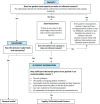Time to Improve Informed Consent for Dialysis: An International Perspective
- PMID: 28377472
- PMCID: PMC5460710
- DOI: 10.2215/CJN.09740916
Time to Improve Informed Consent for Dialysis: An International Perspective
Abstract
The literature reveals that current nephrology practice in obtaining informed consent for dialysis falls short of ethical and legal requirements. Meeting these requirements represents a significant challenge, especially because the benefits and risks of dialysis have shifted significantly with the growing number of older, comorbid patients. The importance of informed consent for dialysis is heightened by several concerns, including: (1) the proportion of predialysis patients and patients on dialysis who lack capacity in decision making and (2) whether older, comorbid, and frail patients understand their poor prognosis and the full implications to their independence and functional status of being on dialysis. This article outlines the ethical and legal requirements for a valid informed consent to dialysis: (1) the patient was competent, (2) the consent was made voluntarily, and (3) the patient was given sufficient information in an understandable manner to make the decision. It then considers the application of these requirements to practice across different countries. In the process of informed consent, the law requires a discussion by the physician of the material risks associated with dialysis and alternative options. We argue that, legally and ethically, this discussion should include both the anticipated trajectory of the illness and the effect on the life of the patient with particular regard to the outcomes most important to the individual. In addition, a discussion should occur about the option of a conservative, nondialysis pathway. These requirements ensure that the ethical principle of respect for patient autonomy is honored in the context of dialysis. Nephrologists need to be open to, comfortable with, and skillful in communicating this information. From these clear, open, ethically, and legally valid consent discussions, a significant dividend will hopefully flow for patients, families, and nephrologists alike.
Keywords: Comprehension; Decision Making; Dissent and Disputes; Humans; Informed Consent; Internationality; Nephrologists; Prognosis; Risk Assessment; autonomy; consent; decision making; dialysis; ethics; nephrology; quality of life; renal dialysis; survival.
Copyright © 2017 by the American Society of Nephrology.
Figures
References
-
- Renal Physicians Association of America: Shared Decision-Making in the Appropriate Initiation of and Withdrawal from Dialysis, 2nd Ed., Rockville, MD, Clinical Practice Guideline, 2010
-
- USRDS: Annual Data Report: Atlas of End-Stage Renal Disease in the United States, Bethesda, MD, National Institutes of Health, National Institute of Diabetes and Digestive and Kidney Diseases, 2009
MeSH terms
LinkOut - more resources
Full Text Sources
Other Literature Sources
Medical


